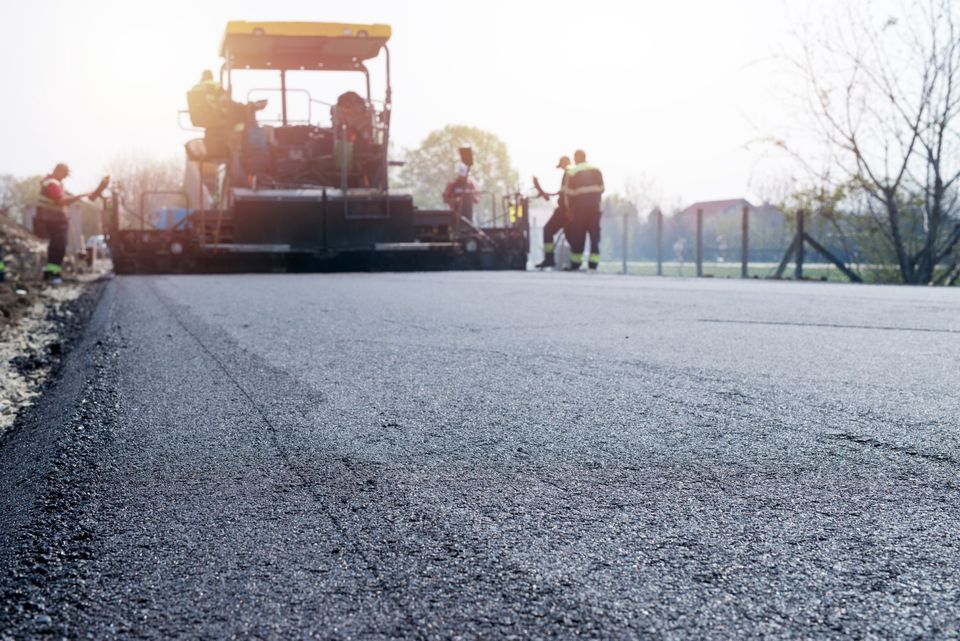Roads are the lifelines connecting communities and facilitating economic activities. Full depth asphalt reclamation has emerged as a popular method for renewing and extending the life of roads. This technique involves recycling the existing asphalt and underlying materials, creating a fresh foundation ready for new surface layers. It's a clever way to rejuvenate aging roads without the hefty costs of traditional road rebuilding. But despite its potential benefits, roads can sometimes fail post-reclamation, leaving us scratching our heads over what went wrong.
A few common issues can arise after the reclamation process. Understanding these problems is key to ensuring the roads last longer and serve the community better. So, why do roads sometimes fall short after undergoing full depth asphalt reclamation? Let's dig into some common culprits that can lead to such problems and explore how we can address them effectively.
Inadequate Soil StabilizationProper soil stabilization is like laying a firm foundation for a house. Just as a sturdy base is crucial for a building's longevity, the same goes for roads. In the context of full depth asphalt reclamation, stabilization involves treating the soil beneath the asphalt to enhance its load-bearing capacity and durability. When this process is overlooked or improperly executed, the stability of the road becomes compromised, leading to premature deterioration.
Here's what you should know about inadequate soil stabilization:
- Definition: Proper soil stabilization entails mixing and compacting materials to create a stable and robust foundation. Without it, roads are vulnerable to weather changes and heavy traffic, causing cracks and potholes over time.
- Impact: On roads with poor stabilization, structural weaknesses start manifesting within a short period. Cracks in the asphalt surface and other signs of wear can appear, leading to frequent and costly repairs.
- Signs to Watch For: Indications of poor stabilization include uneven road surfaces, sinkholes, and rapid surface wear. If you notice these issues, it's a strong signal that the stabilization process was not up to scratch.
Addressing these weak points starts with recognizing when soil stabilization is inadequate and implementing measures to correct it timely. One effective approach is to ensure the use of high-quality stabilizing agents and thorough compaction during the reclamation process. By doing so, the roads will have a better chance of withstanding the test of time, providing a smoother, safer surface for everyone.
Improper Drainage SystemsDrainage is like the hidden hero of any road. It keeps rainwater at bay, ensuring that water doesn't erode the road's foundation. If drains are poorly designed or clogged, water begins to pool, and that's when trouble starts. With water sitting on the surface or seeping into cracks, the structural integrity of the road comes under threat. Over time, this can lead to potholes and even complete road failure.
Imagine a town that experiences a heavy rainfall season. Roads without effective drainage start showing cracks and are prone to large puddles. These are not just an inconvenience for drivers but they also accelerate the road’s wear and tear.
To maintain good drainage:
- Assess Current Systems: Periodically check the drainage systems to ensure they aren’t clogged or malfunctioning.
- Regular Cleaning: Make sure to clean drains and culverts regularly, especially before heavy rain seasons.
- Design with Care: When planning new roads, incorporate efficient drainage designs to handle expected rainfall.
Fixing drainage problems when they arise can save time and money, keeping roads smoother and safer longer.
Incorrect Material UsageUsing the wrong materials in full depth asphalt reclamation can spell trouble. Just as you wouldn't use the wrong ingredients in a recipe, selecting the right materials is crucial for road quality. Some might cut corners, opting for cheaper or unsuitable materials that don't meet the required standards. This often results in weak spots in the road, leading to cracks and faults over time.
Common mistakes include:
- Ignoring Material Quality: Not testing materials for quality or compatibility with the existing foundation.
- Wrong Specifications: Using incorrect asphalt mixes or stabilizers.
To avoid these pitfalls, ensure thorough testing and validation of materials before use. Choose high-quality materials that suit the climate and traffic conditions. This attention to detail helps enhance road longevity and performance.
Insufficient CompactionCompaction might not be the most glamorous part of road building, but it's almost the most important. Think of it as pressing down on wet sand to create a solid surface on the beach. If the new layers in asphalt reclamation aren't compacted properly, air voids remain. These voids allow water and air to enter, weakening the structure over time.
Signs of poor compaction might include:
- Loose Aggregates: The surface spreads too easily.
- Rapid Wear: Quick appearance of ruts and depressions.
Ensuring proper compaction requires careful attention to the process and using the right equipment. This step is pivotal in making sure reclaimed roads are durable and reliable.
A Strong Road AheadTo truly benefit from full depth asphalt reclamation, it's necessary to focus on these key aspects. By understanding and addressing inadequate soil stabilization, improper drainage systems, incorrect material usage, and insufficient compaction, the lifespan of roads can be significantly extended.
Investing time in these processes saves headaches down the road. As roads are meant to serve communities and foster growth, taking care of them properly ensures they remain a reliable backbone for transport and development.
To ensure your roads in Chattanooga, TN stand the test of time, consider the benefits of full depth asphalt reclamation. Terra-Firma Stabilization & Reclamation can offer the expertise needed to tackle these projects effectively. Learn more about how
full depth asphalt reclamation can enhance your infrastructure.

